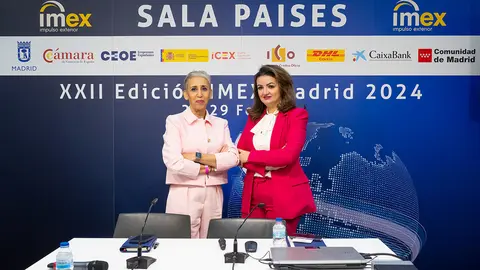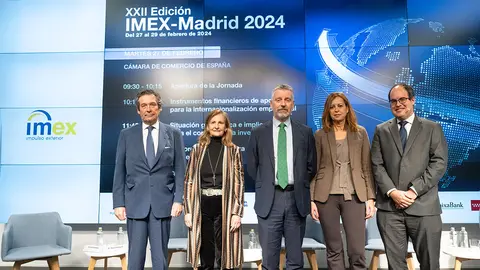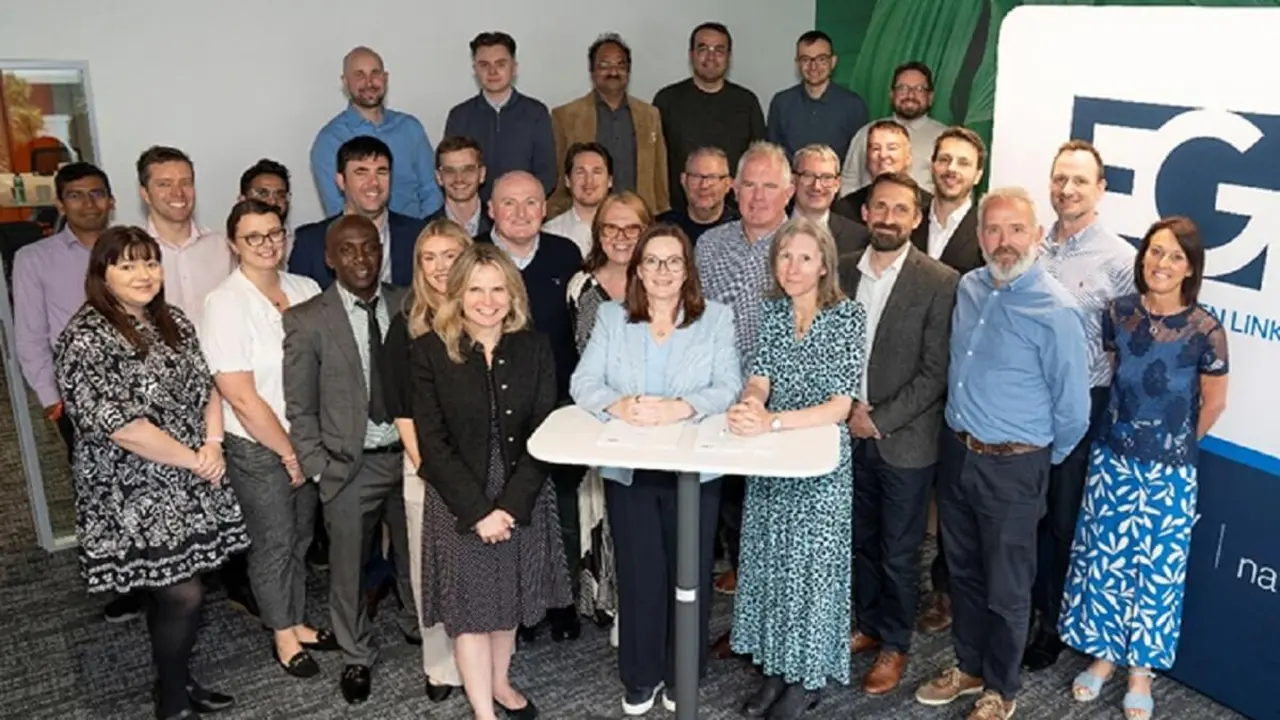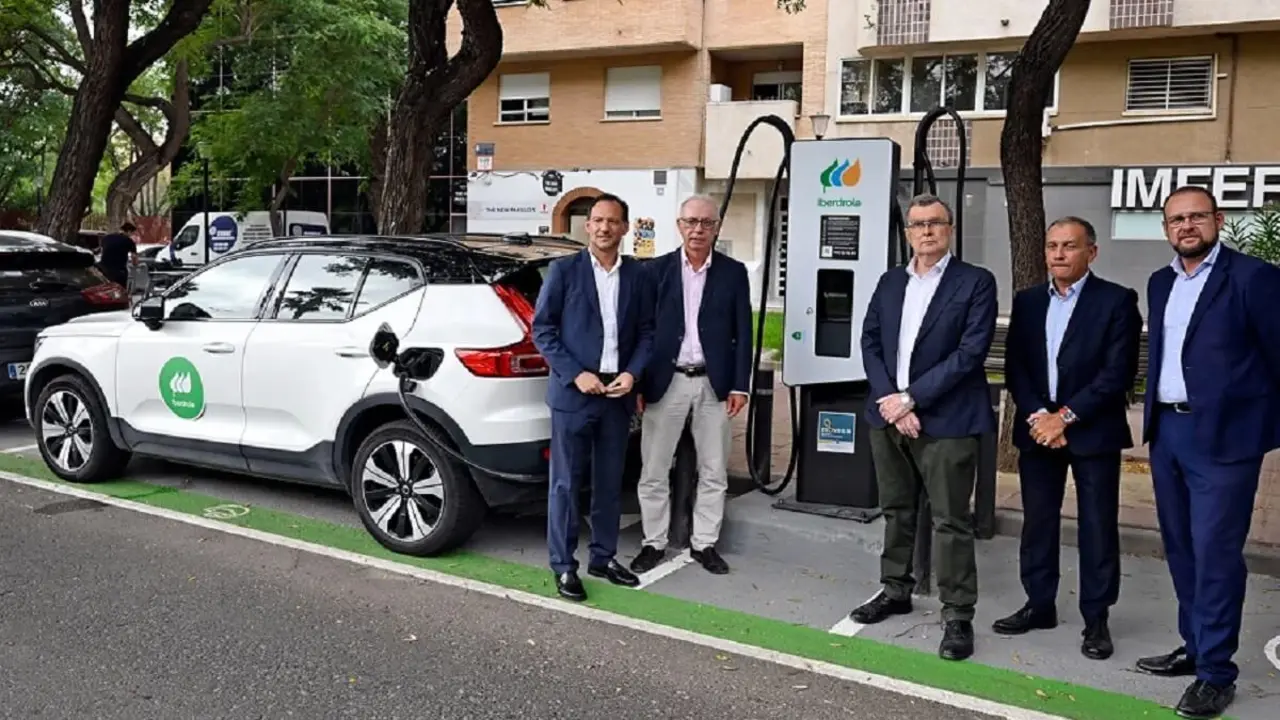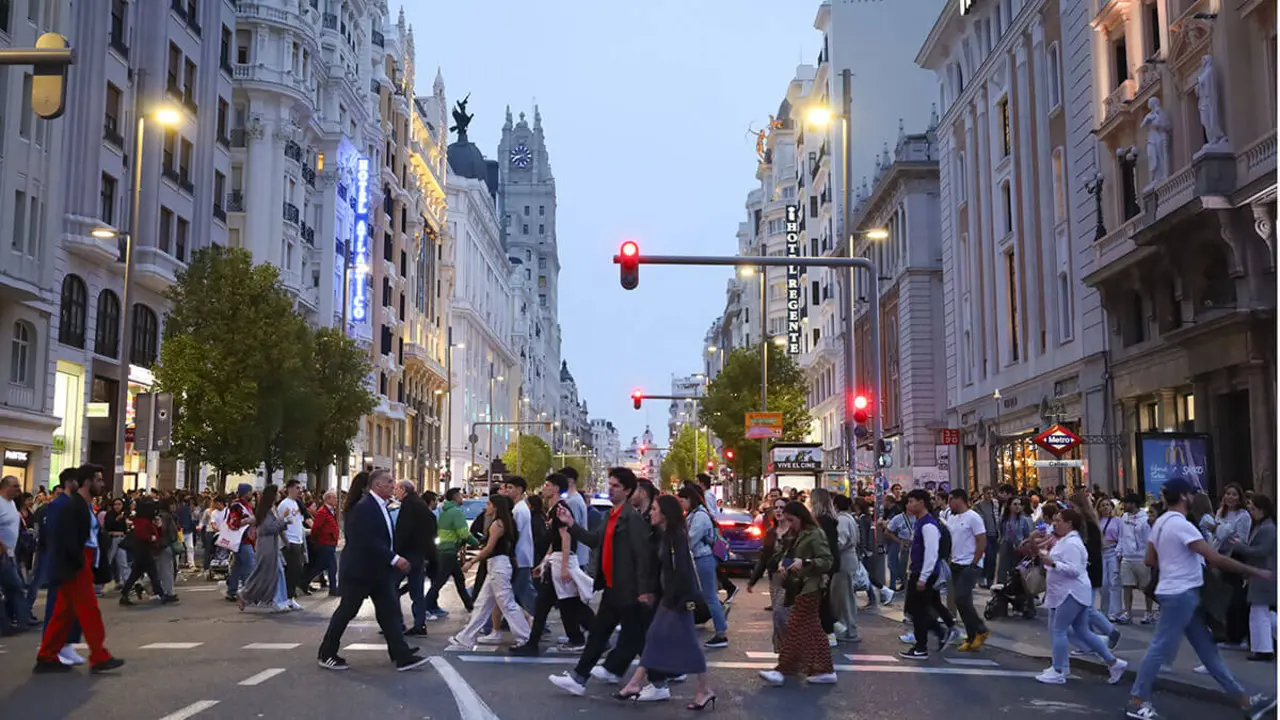IMEX-Madrid: the ports, key to increasing business profitability
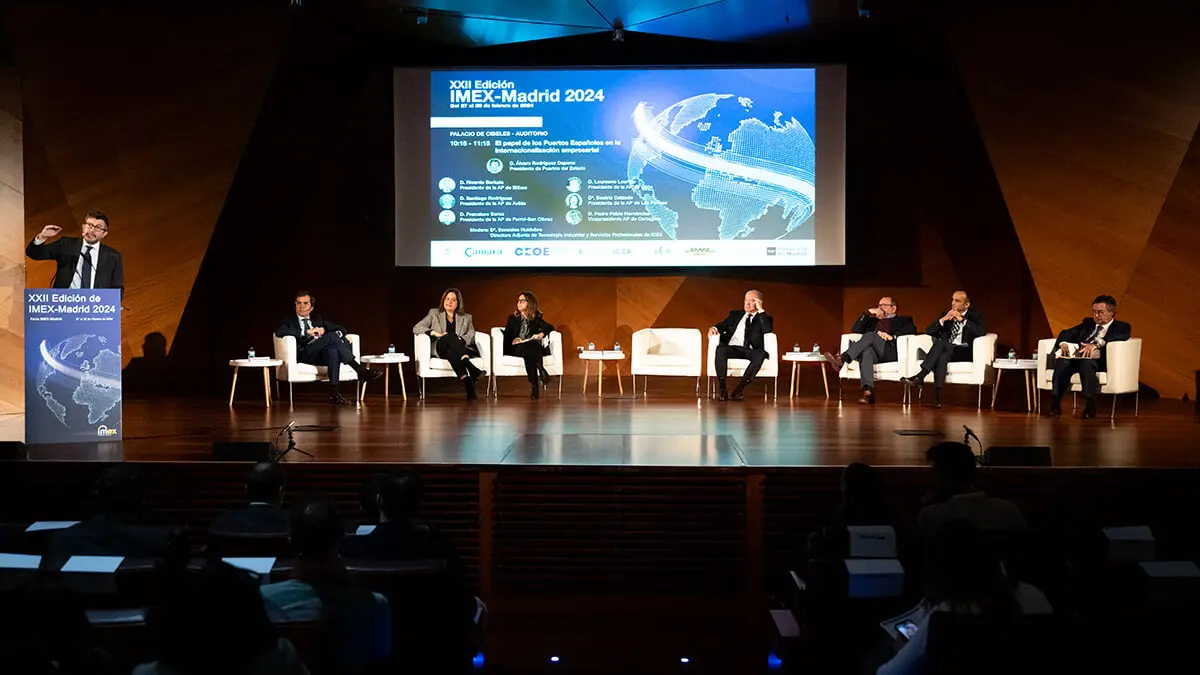
Spain is the country with the longest coastline in the whole of the European Union with 8,000 kilometres, which makes it a strategic point in terms of the connection between continents. The role, therefore, that the different ports represent for business internationalisation is fundamental, a subject that was the focus of one of the panels of the XXII edition of IMEX-Madrid held at the Palacio Cibeles, in which the presidents of the different Spanish ports took part, moderated by Sonsoles Huidobro, Deputy Director of Industrial Technology and Professional Services of ICEX.
The person in charge of presenting this activity was José Terreros, Director of IMEX-Impulso Exterior, who emphasised the contribution of the ports to business growth and how the differences and characteristics of each of them enable them to personalise the service they offer.
The moderator, before introducing the speakers, emphasised that logistics and international competitiveness are closely related and that at the centre are the ports, which are fundamental links, as shown by the fact that more than 60% of exports pass through them and almost 90% of imports, "which gives an idea of the importance of management and the weight in foreign trade", she pointed out.
Álvaro Rodríguez Dapena, President of Puertos del Estado, opened the round of speeches, explaining that there are 28 Port Authorities that manage 46 ports, although there are other smaller ones transferred to the autonomous communities.
Rodríguez Dapena, who recalled Spain's leading role in internationalisation, gave a brief historical overview from the expedition to America to the incorporation of the Treaty of Accession to the EU in 1985 (effective in 1986), which accelerated the trade of products by road and meant, from the 1990s onwards, the incorporation of the Spanish economy into globalisation, not only the large companies, but thousands of SMEs who sought their business outside Spain.
The President of Puertos del Estado summarised what the ports offer the Spanish economy in three main blocks: basic infrastructure (land and sheltered waters), provision of multiple services, and infostructure, "we manage information, we are data concentrators, and we are also making progress in new productivity factors", he affirmed. Characteristics which led him to define ports as "safe, smart and green". He also recalled the role of the ports in the energy transformation and in the maritime connectivity of containers, "we are still the first country".
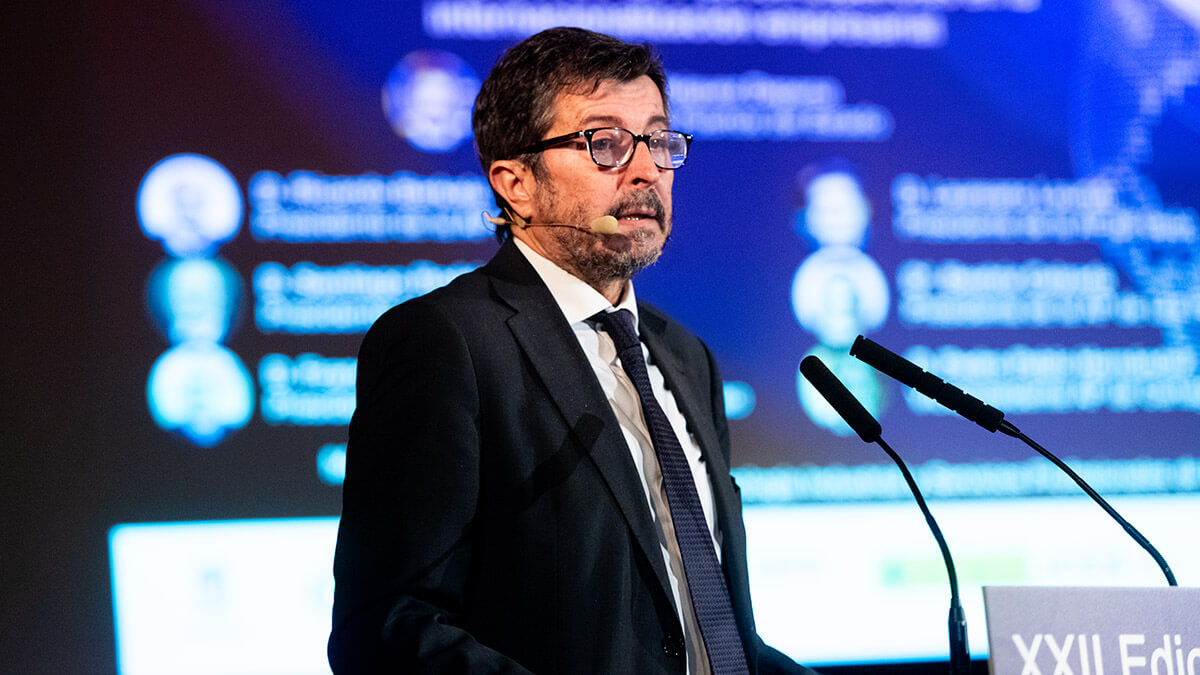
For his part, Ricardo Barkala, President of the Port Authority of Bilbao, emphasised that all the ports are important for their environment, irrespective of capacity or size, and that that of Bilbao generates 33 million tonnes, which represents 8% of the GDP of the Basque Country, with 58,000 jobs around the port. However, he indicated that they exercise other necessary functions, even if they do not contribute tonnes, as an industrial logistics centre, giving agility to the demand of the customers, for example, in the energy field, or collaborating in the competitiveness of the business fabric to improve the carbon footprint.
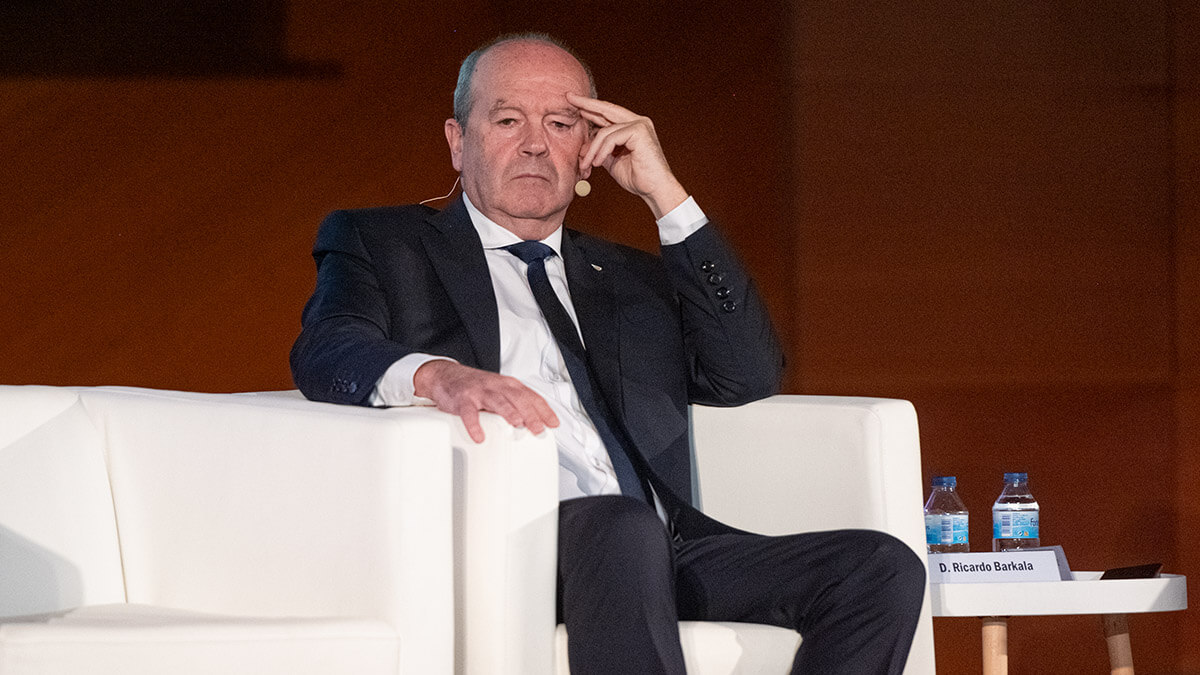
Another of the participants in this panel was Laureano Lourido, president of the Port Authority of Gijón, who recalled the phrase of Themistocles: "He who rules the sea rules all things", to affirm that more than 2,400 years later it is still true, and gave the example of the ship that blocked the Suez Canal for several days and caused the price of crude oil to rise. Lourido stressed that the ports are necessary to promote the economy, "we are not engines of the economy, we are lubricating oil". With regard to the port of Gijón, he stressed that they move between 19 and 21 million tonnes, "we are a bulk port", because with the ecological transition they have lost the export of coal. Finally, he spoke of the fact that they are adjusting to the new times and that the renewable world and the great extension of the port, by 800,000 square metres, open up other possibilities.
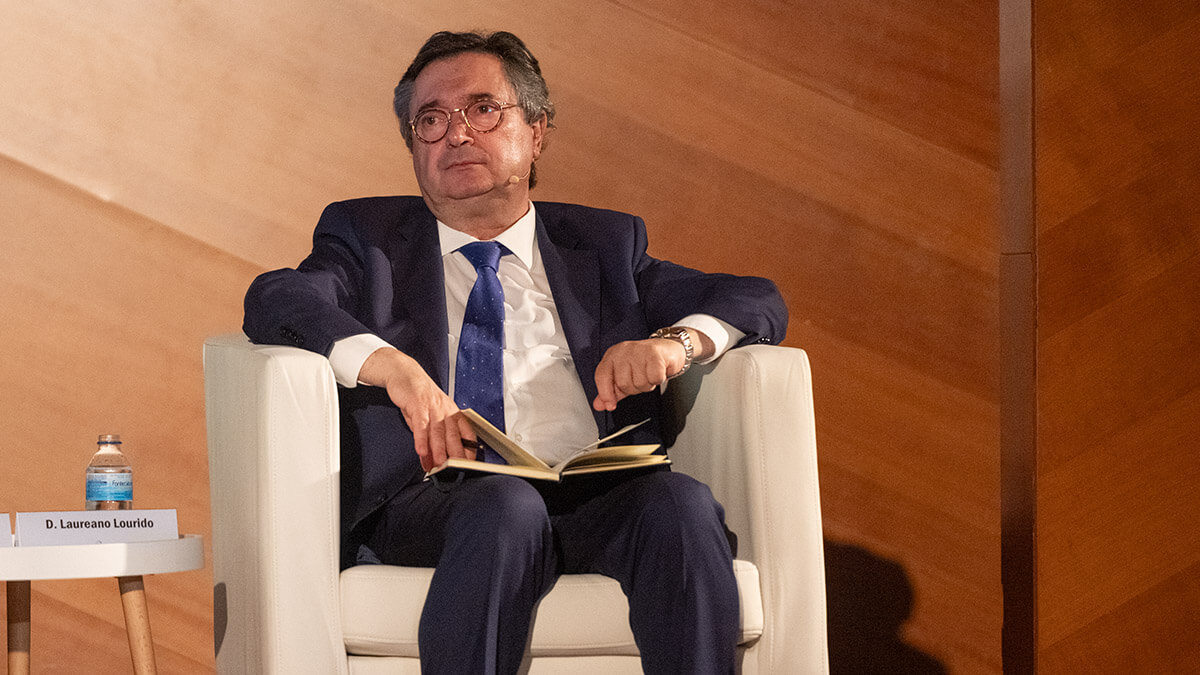
Santiago Rodríguez, President of the Port Authority of Avilés, indicated that, although the port over which he presides moves 5 million tonnes, it is a useful port linked to Asturian industry, mainly the iron and steel, chemical, zinc manufacturing and aluminium-related industries, and that its role of being useful includes its willingness to generate the infrastructure to resolve the problems of the companies.
Faced with the changing world, he indicated that the Port of Avilés is also changing and that, if before it was only destined for the iron and steel industry, it is adapting, and he gave as an example the quays developed 20 years ago which are now the support for a need for industrial development. "That is our role, to contribute to industrial development, to which we add sustainable, green and intelligent ports".
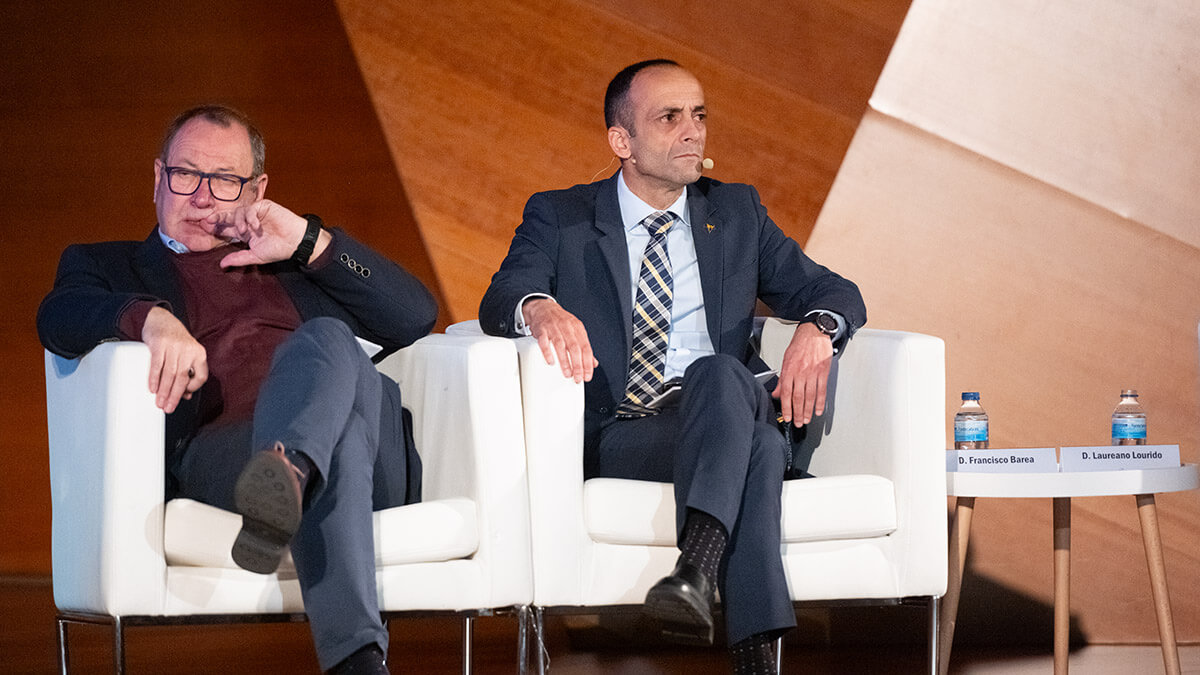
Beatriz Calzada, President of the Port Authority of Las Palmas, an entity comprising five ports, although that of Las Palmas is the most important, with 141 years of life, explained the characteristics which make it different: "Multiservices, we provide everything a ship needs and this is impregnated in the reality of the port and the businessman", he said; connectivity, "which is fundamental"; being a non-industrialised community, but one of services, mainly tourism, "without a port there is no tourism"; being an ultraperipheral region; and the advantageous taxation that the Canary Islands have with respect to the rest of Spain and Europe.
The President of the Port Authority of Ferrol-San Cibrao, Francisco Barea, was another of the participants. Among the peculiarities of this port, he highlighted the fact that it is not a centralised port, and the importance of the estuary, as it is home to the Navantia shipyards, which are world leaders in the manufacture of fixed wind turbines, or other important companies such as Reganosa, dedicated to the transport and regasification of natural gas, or Megasa, an iron derivatives factory. In addition, he said, it is from two provinces: Lugo and La Coruña.
For the director of this port, which has moved 12 million tonnes on average in the last 15 years, the important thing is to develop infrastructures and to be instrumental bodies for the companies, "we have to be able to make the companies come".

Pedro Pablo Hernández, Vice-President of the Port of Cartagena, closed the round of speeches by emphasising that each port is differentiated by its environment. The Port of Cartagena, he recalled, has 3,000 years of history, "we are what we are because of that history, but today we are also the lever to modify that history or to participate in it", he affirmed.
With regard to the Port of Cartagena, which moves some 38 million tonnes and provides the region of Murcia with 12,000 jobs, he pointed out that the traffic is bulk, due to the large industry in the energy sector, but that they are also favouring other types of business opportunities. The port can be a catalyst and help to evolve, something which can be done, said Hernández, with infrastructure, support for the energy transition, the circular economy, LNG transport, green hydrogen....
This round table concluded with the words of the President of Puertos del Estado who, by way of summary, reiterated the importance of each port regardless of the tonnes moved, the need to try to satisfy the client with personalised logistics and the existence of permanent communication between ports and companies to decipher the keys to the market. "Value has to do with an economic, environmental and social dimension", he concluded.
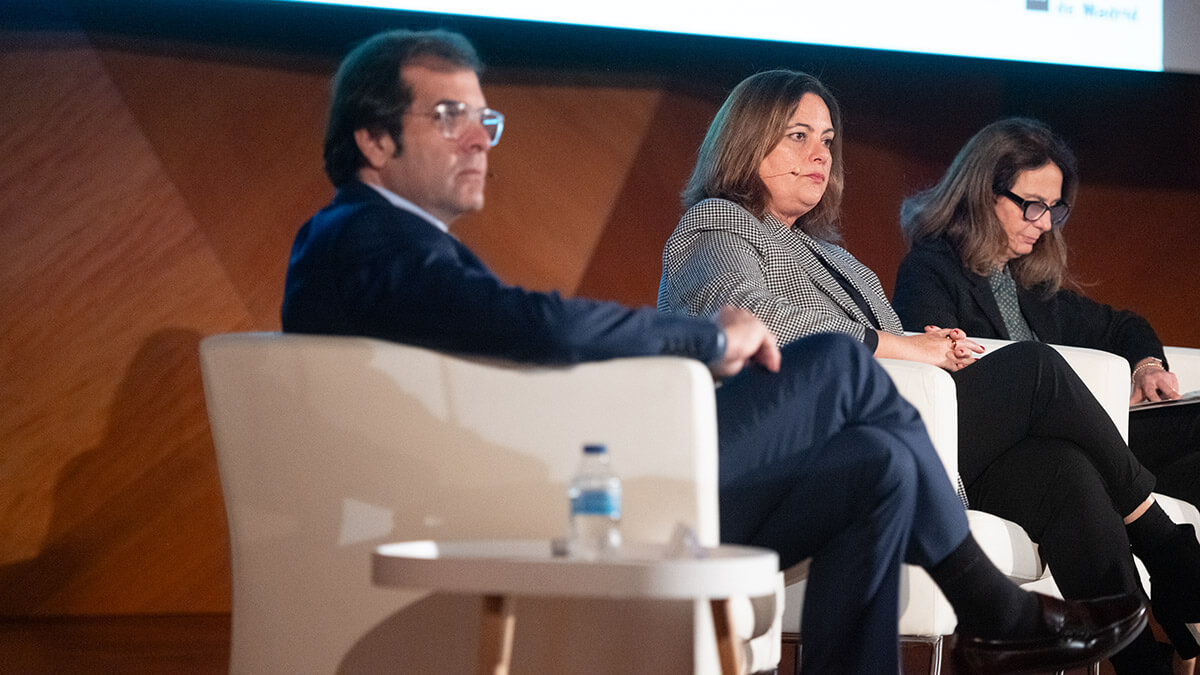
The auditorium of the Palacio Cibeles was the setting for the institutional act led by Jaime de Ussía, president of IMEX-Impulso Exterior, Miguel Garrido, president of CEIM, and Ángel Asensio, president of the Chamber of Commerce, Industry and Services of Madrid. In addition, three more round tables were held to address the new model of internationalisation with artificial intelligence; the tools for the international expansion of Madrid SMEs and the strategies of the food sector to compete in the international market.


